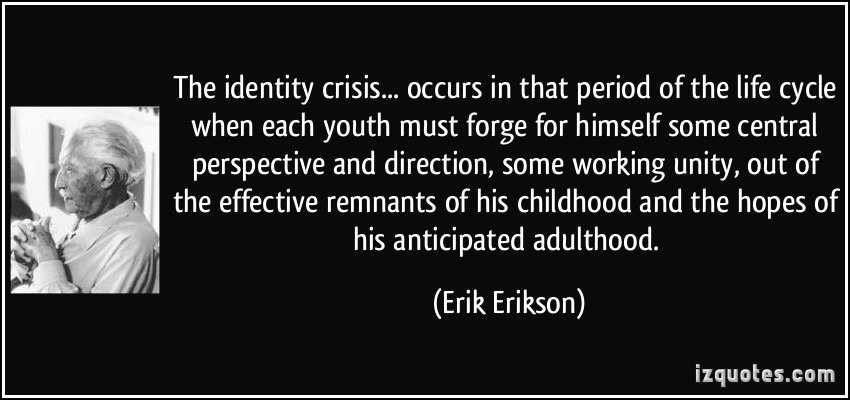-
Was Socrates a martyr?I don't know if you are wrong, but I disagree as I don't see "philosophy as a way of life" as a persecuted cauae — 180 Proof
Well, certainly Socrates was condemned to death for examining the lives of others and himself. -
Was Socrates a martyr?
It seems to me that Socrates did die for a cause... Yet, it would be hard to pin down Socrates as ideologically driven to do so, or am I wrong on this? -
Was Socrates a martyr?
Of living the philosophical life as he did.
Philosophy as a way of life, with Socrates... -
Is "good", indefinable?The word "good" is mostly used to indicate a satisfactory level or degree of something, based on commonly or generally accepted standards. It is applied to both quality and quantity: Good food, good joke, good essay, good news, good health, good friend, ... — Alkis Piskas
Well, instead of running in circles, what does that something mean? -
Is "good", indefinable?@Banno, for the sake of the thread can you expand on the open ended argument in reference to what implications it has in the domain of discourse wrt. to ethics?
-
BanningsI just wanted to point out the tu quoque fallacy that everyone thought that y'all be committing to a much higher degree than Bartricks himself.
Y'all be full of shit, was his guiding motto as it appears. -
Is "good", indefinable?Non-naturalism is a form of what's known as 'objectivist' metaethical theory. 'Objective' in this context means 'exists as something other than subjective states'. Moore positively rejects the idea that morality could be made of our own - or someone else's - subjective states, for that would be to reduce morality to something else.
And Moore himself was a realist. A 'realist' about morality is someone who thinks morality exists. That is, moral objects and relations are real. — Bartricks
But, see the quote by Banno above. It clearly states in the SEP entry that:
Moore’s non-naturalism comprised two main theses. One was the realist thesis that moral and more generally normative judgements – like many of his contemporaries, Moore did not distinguish the two – are true or false objectively, or independently of any beliefs or attitudes we may have. The other was the autonomy-of-ethics thesis that moral judgements are sui generis, neither reducible to nor derivable from non-moral, for example scientific or metaphysical, judgements; they express a distinctive kind of objective truth. Closely connected to his non-naturalism was the epistemological view that our knowledge of moral truths is intuitive, in the sense that it is not arrived at by inference from non-moral truths but rests on our recognizing certain moral propositions as self-evident, by a kind of direct or immediate insight. — SEP
To say that something in inherently intuitive (such as morality in Moore's case) seems to indicate that what moral claims represent are at least very subjective states, that are commensurably agreed upon. Do you think that's something correct to state? -
The Shoutbox should be abolished
It would be a perfect world if we made do with satisfying our appetite from wild pigs instead of growing them for meat in farms. -
The Shoutbox should be abolished

Well, here's a goat and a pig. The goat is a voracious animal; but, a pig can be more. -
Is "good", indefinable?So part 1, Moore is supposing that moral statements have a truth value, and that this truth value is not just the opinions of the individual involved. And Moore is supposing that moral judgements are distinct from and not reducible to other sorts of judgements. — Banno
In terms of what is a moral statement a truth value? Further, what does it mean to say that it's not reducible to other sorts of judgements? -
Is "good", indefinable?Perhaps it would be useful to work through Moore’s Moral Philosophy? — Banno
Sure, I'll tag along. Is that something you wanted to survey? -
The Shoutbox should be abolished
Idk, there were some members that seemed like it was just life giving them a hard time and just making some noise over it that got them banned.
(Not very many)
I doubt they'd want to come back though as they moved on in their lives. -
Kripke: Identity and NecessityI got lost a while ago. I thought the reading group ended with the mind-body problem...
-
The Shoutbox should be abolishedWell, well, well, I don't think the OP could believe what happened.
-
The Shoutbox should be abolishedIt never seemed to be an issue until, well never really.
It's a community anyways. -
Is "good", indefinable?
I thought that the gist with Moore was in pointing out that the naturalistic fallacy constantly occurs when surveying what is "good". -
The Subject as Subjected: Self vs Identity in Our Social Context
I think you can be more direct and precise by stating the holidays we engage in and religion like Christmas, the new years resolutions we make, and Halloween, or Guy Fawkes Night, as typical examples of subliminal of fantasy in our daily lives and in our calendar years.
The Internet organization called Anonymous is an interesting case in point. -
The Subject as Subjected: Self vs Identity in Our Social ContextYou can also find the story of Pinocchio as an interesting parable somewhat related to this thread.
Shawn

Start FollowingSend a Message
- Other sites we like
- Social media
- Terms of Service
- Sign In
- Created with PlushForums
- © 2026 The Philosophy Forum
